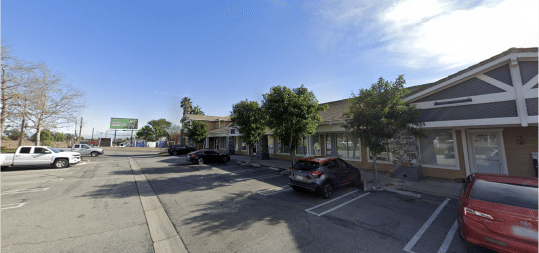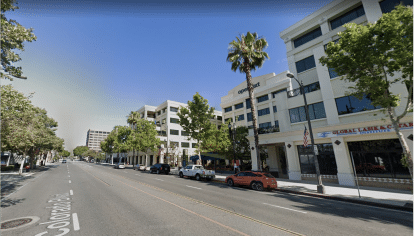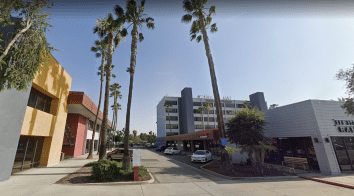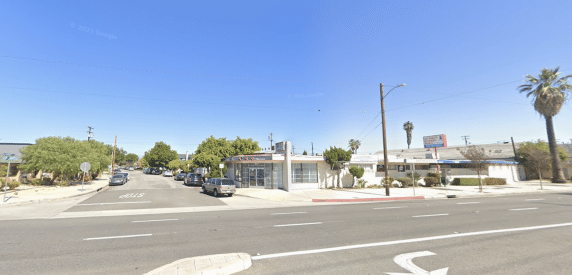
Generally, an arrest in Corona is a surprise. You might also be confused about the best course of action, especially if you do not have enough money to secure your release on bail. Our mandate at Cali Bail Bond is to assist you. We offer different types of bail bonds, including domestic violence bail bonds, assault bail bonds, and driving under the influence bail bonds. We can also look at your financial situation and provide flexible payment plans.
Corona bail bonds are a legally binding agreement between the defendant and the bonding company. They offer numerous benefits to the court and the accused person. The defendants can resume their everyday routine with minimal disruption, allowing them to continue being responsible citizens and building their defense. Additionally, the bonds lessen over-crowding in detaining centers, which considerably lowers the cost to the taxpayers.
Here is how bail bonds work.
The first source of authority the law enforcers use in determining bail is the bail schedule. Typically, the bail schedule is determinative of the bail amount you should pay to be released from detention after your arrest before arraignment. It sets a specific dollar amount for a particular crime which is almost equivalent to the amount of possible jail/prison time you would serve if found guilty of the offense.
During your arraignment (initial court hearing), you can request a bail hearing. The bail hearing is a legal proceeding where the judge determines whether you should be released on bail as you await trial. The judge has the discretion to depart from the bail schedule by either lowering or increasing the bail amount.
Some of the factors that affect your bail amount include:
Once the court establishes the bail amount, you can contact a reliable Corona bail bonds agency to post your bail bond directly to the court. In return, the bonding company will require you to pay a non-refundable percentage of your bail amount. The premium is usually ten percent.
Your bondsman is also tasked with ensuring that you attend all your court hearings. In doing so, a contract between the agent, a co-signer, and the defendant is signed. The agency might also require collateral due to the financial risk involved.
You will also be required to adhere to bail conditions, such as:
The court exonerates the bonds after showing up in all court proceedings and complying with the bail terms. The bonding firm and your co-signer are no longer accountable for ensuring your appearance and receive their funds or collateral back. Exoneration occurs at the end of the criminal case regardless of whether you are found guilty or not.
When a friend or relative is in police custody, getting them released quickly should be your ultimate goal. Most seasoned bail bond agencies are open round the clock, and you can start the release process immediately. Nevertheless, one of the hurdles faced is filing out the bond application.
The application has many essential sections and can be overwhelming. Understanding the elements allows you to find out what is required to complete the application and post bail quickly.
An Indemnitor is also known as a co-signer. If you pay the bond premium for an accused person, you become the co-signer and the Indemnitor in the bond application.
You will be required to provide your name, driver's license number, phone number, and address in your bond application.
A vast portion of the application involves information about the defendant. Although most of these details are straightforward, you might face challenges with the personal reference section.
The bondsman posts enormous sums of money and relies on people to comply with the court's guidelines. This section will offer the agency contact details to confirm whether the defendant is responsible, credible, and trustworthy.
You can include immediate relatives or close friends who can vouch for the accused.
Your bond agent will conduct a credit check to authorize you as the co-signer. On top of personal contact info, you should have your bank account details and social security number available. If you've a check, you will require:
Knowing these details beforehand helps you avoid delays during your bond processing time.
Due to the financial risk involved, your bondsman might require that you use collateral.
A conventional collateral section will take in details about a motor vehicle or home. More often than not, you don't have to fill out all the sections. If you don't have a house or car, the bail bond agent can seek other types of collateral such as jewelry, valuable fixtures, and stocks and bonds. In that case, you will require another form.
If you still face challenges filling out your application, contact the team at Cali Bail Bonds. We can guide you through the application, so your relative is released timely.
Imagine receiving a call at night that a loved one has been arrested and needs your help getting released. It could be a friend, neighbor, or relative to whom you feel a sense of responsibility. Maybe it is your business partner or employer on whom your source of income depends. Paying money to secure the release is one thing; entering into a binding agreement is another. It might present concerns and more questions. The section below offers you information to assist you in deciding wisely.
Bondsmen need a third party on all bail applications. The co-signer enters into an Indemnity Agreement. The agreement compels them to the entire bail amount should the court forfeit the bond after the accused individual skips bail.
You also confirm the authenticity of the details the defendant offers. Additionally, you accept contractual obligation and agree to protect the bondsman from the penalty of the defendant skipping bail. To safeguard the interests of every party, the bonding agent will require the co-signer to be a person close to the suspect, of financial solvency and appropriate age.
Here is how cosigning might affect you:
Co-signing is an obligation that you should not take lightly. You should sign the agreement after consideration of the following questions:
Life is expensive in California, so is the legal system. Luckily, there are options to make your bail more cost-effectively.
Generally, bail bond agents require a portion of the total bail amount to be paid upfront. If your set bail amount is two hundred thousand dollars, you will pay twenty thousand dollars in cash. If you do not have that amount, you can use collateral.
Collateral bonds let you use real property among other valuables like jewelry in lieu of cash payments. When using an asset as collateral:
If you place your asset to secure another person's release, you must understand that the court will forfeit the property if the defendant fails to meet the bail conditions.
A financial hardship reduction is a reduction of the bail amount as a result of financial challenges. An individual paying costly medical bills or a student might be eligible for the reduction.
On top of filing a motion to reduce your bail, you will require proof to persuade the judge that you deserve the benefit. Please note that the alleged crime and the evidence against you might influence the judge's decision. As a result, the importance of engaging a criminal defense lawyer cannot be overlooked.
While using Corona bail bonds is more pocket-friendly than posting the entire bail amount, the accused might have difficulties raising the bond premium. That shouldn't stop you from looking for assistance. Your bondsman could set up a flexible payment plan to ensure you pay the premium depending on your financial abilities.
Common bond payment plans include:
When looking for a realistic payment plan, find out if interest applies to your balance. Since you're paying the bail bond in installment, the balance might be subjected to interest rates set forth by your agency.
When negotiating your payment plan, come up with an amount you will comfortably pay monthly. That way, you avoid skipping your payments, leading to accrued interest rate and loss of the collateral used.
After you fail to make court appearances, the court might issue a warrant for an arrest. The warrant is called a bench warrant. Nevertheless, if your defense lawyer can provide a reasonable reason why you skipped bail, the judge might decide not to issue the warrant.
You need to realize that it's tricky to persuade the court that you have a valid reason why you jumped bail. You can convince the judge if you were severely injured or sick and cannot reach your lawyer or were involved in an accident. Ensure you have documentation like medical statements, a medical record, or accident reports supporting the excuse.
If the judge finds your absence unacceptable, be ready to face the consequences. The judge can revoke the bail or increase the bail amount. You are also likely to face another criminal charge for jumping bail.
Most jurisdictions provide defendants who missed their proceedings with a leniency period. Provided you turn yourself in within 180 days, you will neither face an additional criminal charge nor have your bail revoked.
If you used bondsman services, you need to understand that skipping bail affects the bail bond. Please don't assume the matter will go away on its own. Instead, reach your bond agent immediately after you learn that you missed the court date. The agency can assist you in getting the bail reinstated.
It would be best if you did not worry that you'll pay your entire bail amount to the bail bond agent due to failure to appear. Generally, that is not the case. Agencies don't require clients to repay their bail amount unless they flee the jurisdiction and stop reaching the company.
The company might use bounty hunters to locate and return you to police custody.
A bondsman employs a bounty hunter as an added precaution for their venture, the bail bond.
When you use bail bond services and comply with all the bail conditions, the court will refund the bail amount to the agency. However, if you flee town, fail to attend your hearings because you did not want to or forgot, the court will forfeit the amount. At this moment, the agent has to locate you and return you to court to recoup the funds. They can hire bounty hunters to apprehend you.
Not everyone can be a bounty hunter. In California, bounty hunters should be licensed, trained, above 18 years, and without a felony criminal history.
If bounty hunters are hunting you, they should have documentation from the bailing agency proving they are entitled to act so. They should also notify the police of your pending arrest.
Like law enforcers, bounty hunters should always have their license when pursuing you. Nonetheless, it is illegal for them to pose like a police officer.
Apart from rare instances, bounty hunters can't forcibly enter your home. However, they can contact the police to have you arrested.
Sometimes a bounty hunter might follow you to Corona from another state. A bounty hunter is only lawfully permitted to look for a fugitive if they reside in a state that follows strict regulations and requires training and licensing.
Corona Police Department
730 Public Safety Way
Corona, CA 92880
Phone: (951) 736-2330
Corona City Code Enforcement
730 Corporation-Yard Way
Corona, CA 92880
Phone: (951) 739-4970
California Rehabilitation Center
5th Street and Western
Norco, CA 92860
Phone: (951) 737-2683
California Institution for Women
16756 Chino-Corona Road
Corona, CA 92880
Phone: (909) 597-1771
Just like any criminal law matter, posting bail is challenging. Working with a seasoned bail bond agent is preferable for a favorable case outcome. At Cali Bail Bonds, we believe that you are innocent until proven guilty. We can work to secure your release as soon as possible so you can reunite with your loved ones and prepare for the criminal case. Contact us at 562-376-5476 at any time of the day you would like to consult with our friendly agents or have a question.
"*" indicates required fields






